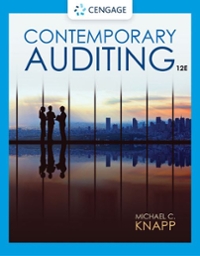Say that you infect your computer with the virus du jour after downloading a YouTube video that
Question:
Say that you infect your computer with the virus du jour after downloading a YouTube video that had been trending on your favorite social media site. What do you do? Many low-tech mouse potatoes would immediately call the Geek Squad. In 1994, Best Buy, the consumer electronics retailer, acquired Geek Squad and made the computer services company a wholly-owned subsidiary.
Geek Squad invokes a wide range of tongue-in-cheek espionage terms within its operations. For example, the company applies the moniker "counter intelligence" to its in-store facilities (customer service counters) where panicked computerphobes bring their "sick" machines to be reconfigured, repaired, or put out of their misery.
Other James Bond-type expressions borrowed by the Geek Squad include CIA (counter intelligence agent), Special Agent, and Double Agent.
In 2017, a Fortune magazine article brought new meaning to the employee title "Double Agent" assigned to certain entry-level Geek Squad employees. The article reported that the Federal Bureau of Investigation (FBI) recruited and compensated Geek Squad employees as informants. "New federal court filings . . . include information about the long-term training and management of Geek Squad staff as FBI informants, who used their access to customers' computers to actively search for illegal material, primarily child pornography."1 The FBI had previously admitted paying "Best Buy employees $500 for tips about child pornography,"2 but the court documents referred to in the Fortune article revealed the federal agency had gone much further and developed a program to train selected Geek Squad employees to find illegal files on customers' computers. A criminal defense attorney argued such training made Geek Squad employees "de facto government agents."3
The federal government created the forerunner of the FBI in 1908, but it wasn't until 1935 that the organization was officially christened the Federal Bureau of Investigation.
J. Edgar Hoover, a hard-nosed and humorless authoritarian, oversaw the FBI's operations from 1924 until his death in 1972. Throughout Hoover's tenure, the FBI increasingly relied on civilian informants4 to collect information in its pursuit of known criminals and suspected lawbreakers. That trend continued in the agency's post Hoover era. A U.S. Senate report in the late 1970s revealed the federal agency relied on informants in nearly 90 percent of the investigations it pursued. The Senate report characterized the use of informants as a "highly effective technique," which is "justified by the public's interest in the detection of crime and the prosecution of criminals.5
Questions
1. The "public interest" is one of the six ethical principles embedded in the AICPA Code of Professional Conduct. What responsibility or obligations do independent auditors have to serve the public interest? Do you believe the former BDO auditor's actions reported in this case were in the public interest? Defend your answer.
2. Do the public interest-related obligations of independent auditors conflict with the obligations imposed on them by the five other ethical principles included in the AICPA Code of Professional Conduct? Defend your answer.
3. The FBI employs deception to collect information during its investigations. Do you believe it is appropriate for auditors to use deception when collecting audit evidence? Explain
Step by Step Answer:






